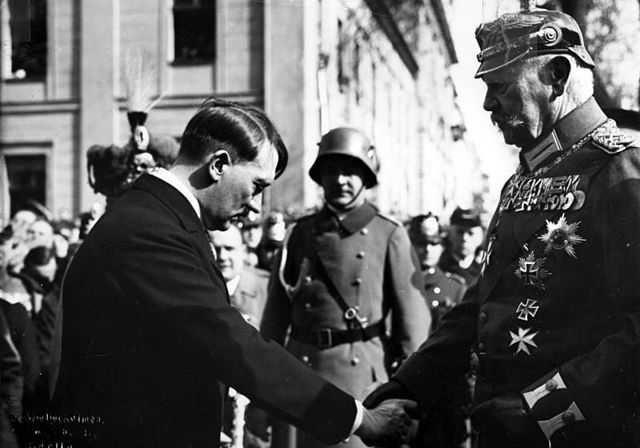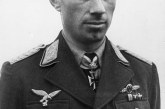
Story Highlights
- Historical event
- 19 August 1934
- Hitler passed a law in the German parliament according to which he was to inherit the office of President after Hindenburg’s death on 2 August 1934. Hitler’s official title now became “Führer und Reichskanzler”. Hitler wanted the German people to confirm his new position and thus organized a referendum on this day. The turnout was a staggering 95 percent and Hitler won by a landslide.
On this day Adolf Hitler held a referendum in Nazi Germany, where it was to be decided whether he could hold the dual office of head of state and head of government.
He had already become head of government (Chancellor) during the previous year (1933).
At the time, Germany was still a republic and had a president. That position was held by Paul von Hindenburg, a well-known field marshal from the First World War and elected back in 1925.
However, Hindenburg died on 2 August 1934. Hitler had passed a law in the German parliament according to which he was to inherit the office of President after Hindenburg’s death. Hitler’s official title now became “Führer und Reichskanzler”.
Even so, Hitler wanted the German people to confirm his new position and thus organized a referendum on this day.
The turnout was a staggering 95 percent and Hitler won by a landslide – around 90 percent of the voters had said “Ja” (Yes) and confirmed Hitler’s new office.
He could no longer be legally removed from office since he was simultaneously head of government and head of state.
Because 38 million Germans had supported Hitler, the international community couldn’t protest.
However, it’s worth noting that the referendum was not exactly free according to modern standards, since the Nazis had already held power in Germany for over a year and had already begun introducing a dictatorial regime.
Holding the new office of Führer (de facto President), Hitler also became the commander-in-chief of the German Armed Forces.
From then on, German soldiers no longer swore an oath to the German state, but directly to the Führer.
A legal act according to which all state functionaries also had to swear an oath of fealty to the Führer was introduced the very next day. This allowed Hitler to hold total power over Germany.




